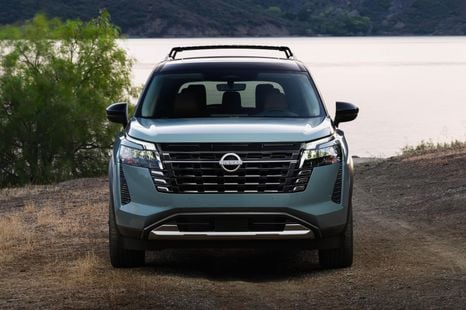

Damion Smy
Nissan previews four new off-road SUVs and a ute, including Ranger and Prado rivals – report
3 Days Ago
The second-generation Isuzu MU-X is more capable and contemporary, and stacks up despite price increases.
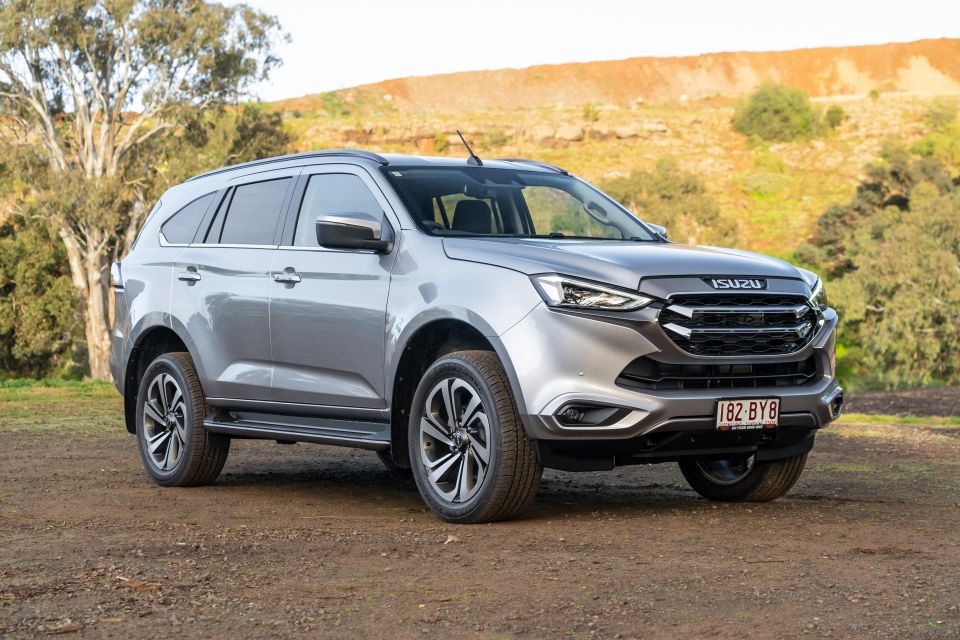
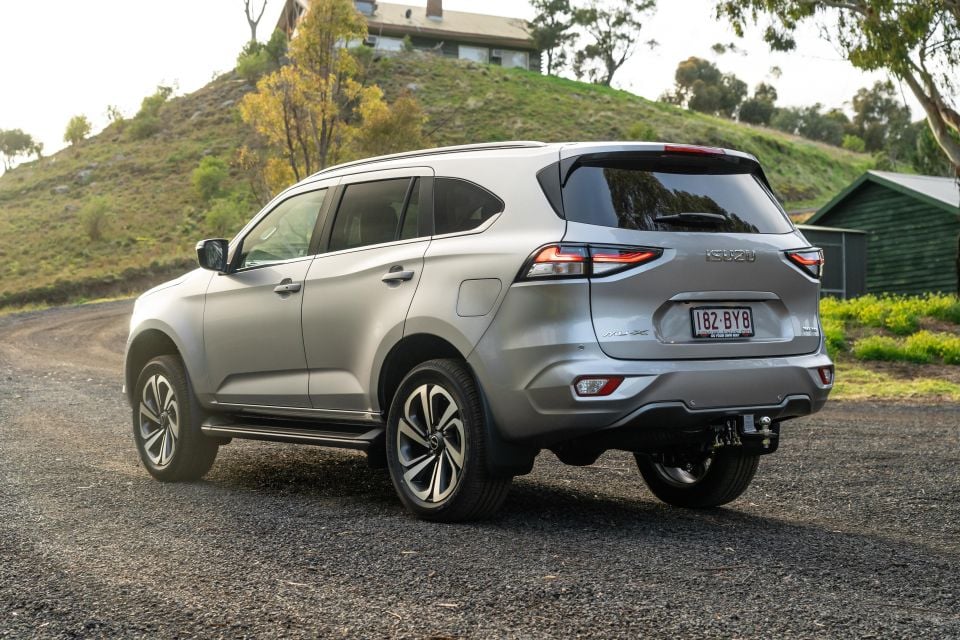

Quickly see how this car stacks up against its competition. Select any benchmark to see more details.
CarExpert brings reviews, research tools and trusted buying support together, guiding you from research to delivery with confidence.
The first-generation Isuzu MU-X was a no-nonsense and rugged seven-seater SUV designed for towing and off-roading – or regional school runs.
Yes it was a bit old-school, but next to a Toyota Prado or Ford Everest it was a bargain. Moreover, it proved itself over the years to be a reliable and trustworthy machine.
Credit to Isuzu Ute, this resonated with tens of thousands of Australians who wanted a country-friendly family hauler well-suited to getting away from the urban limits.
Australia is now one of the brand’s biggest markets anywhere in the world, in fact it’s second only to Thailand where the MU-X is built. “Go your own way” indeed…
Moreover the MU-X has been Australia’s top-selling strictly ute-based SUV for seven years in a row, topping the aforementioned Everest as well as the Mitsubishi Pajero Sport.
This all-new second-generation MU-X is a different beast in some ways – notably exhibited through its more contemporary cabin tech and active safety – but at heart it should still appeal to fundamentally the same sort of buyer.
This is not really the seven-seat family SUV you buy if you live in the ‘burbs and rarely venture off the path most travelled. That’s what a Toyota Kluger or Mazda CX-9 is for.
But for the sort of person who owned or wanted the old model, it delivers the goods – if you can accept the price hikes to be detailed in a sec…
By the way, do you like the look? The new MU-X is a little sleeker than the old car to yield a better coefficient-of-drag.
With a pronounced rising shoulder line, aggressive headlights, and a chrome front grille in flagship LS-T guise tested here, finished in ‘Tungsten Silver’, we reckon it looks pretty good. Let us know your thoughts in the comments.

There are three MU-X spec levels to choose from: the workhorse LS-M, mid-tier LS-U, and luxury LS-T. Unlike the D-Max ute there’s no X-Terrain equivalent with chunkier design add-ons.
In 4×2 (rear-wheel drive) forms, the LS-M costs $47,900, the LS-U $53,900, and the LS-T $59,900. All three with 4×4 drivetrains are a further $6000. All of these prices are list, before State taxes and dealer delivery charges.
While the new MU-X is undoubtedly deserving of a higher price tag, the RRP increases are between $2700 and $9800 – not a small amount!
2022Isuzu MU-X pricing:
All prices exclude on-road costs
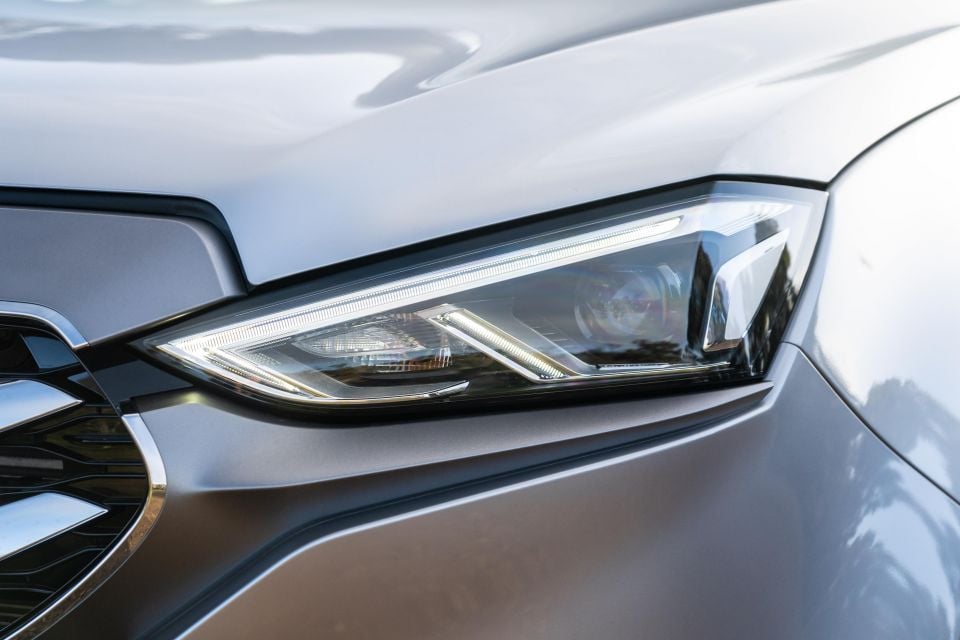
However, it’s important to note Isuzu Ute Australia is discounting the LS-T 4×4 range-topper to $63,990 drive-away. Getting the best price on any of the others is a matter for you and your local dealer to sort out.
At $63,990, what does this flagship MU-X LS-T 4×4 line up against? It’s still cheaper than a stripped-out base Prado GX at $66,200 drive-away in Victoria as per Toyota’s website price calculator.
At the time of writing the drive-away price for a less-well-equipped mid-range Ford Everest Trend BiTurbo was just under $68,000, and a top-of-the-range Mitsubishi Pajero Sport Exceed $60,990 drive-away.
In other words while it’s disappointing to see an RRP increase of such magnitude, context does matter.
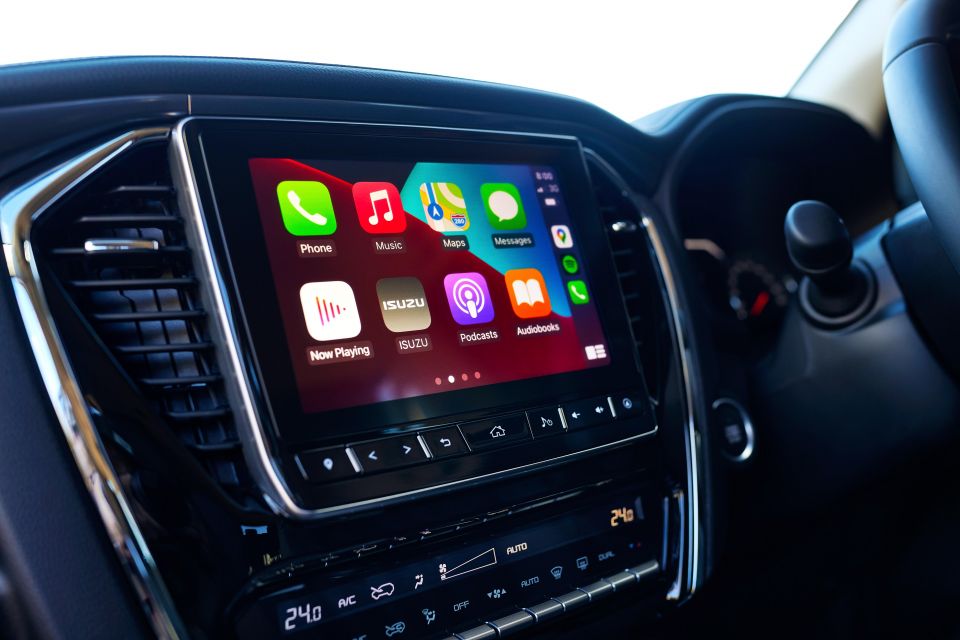
Buy your new car without the stress. It's fast, simple and completely free.

Great service from Travis and team, second time I have used this business would not hesitate to recommend them to anyone
Craig C.
Purchased a Ford Ranger in Sunshine Coast, QLD
CarExpert helped Craig save thousands on his Ford Ranger, now let us save you on your next new car.
Get your BEST priceGiven this is technically a launch review, we’ll detail all three variants in brief.
MU-X LS-M standard features:
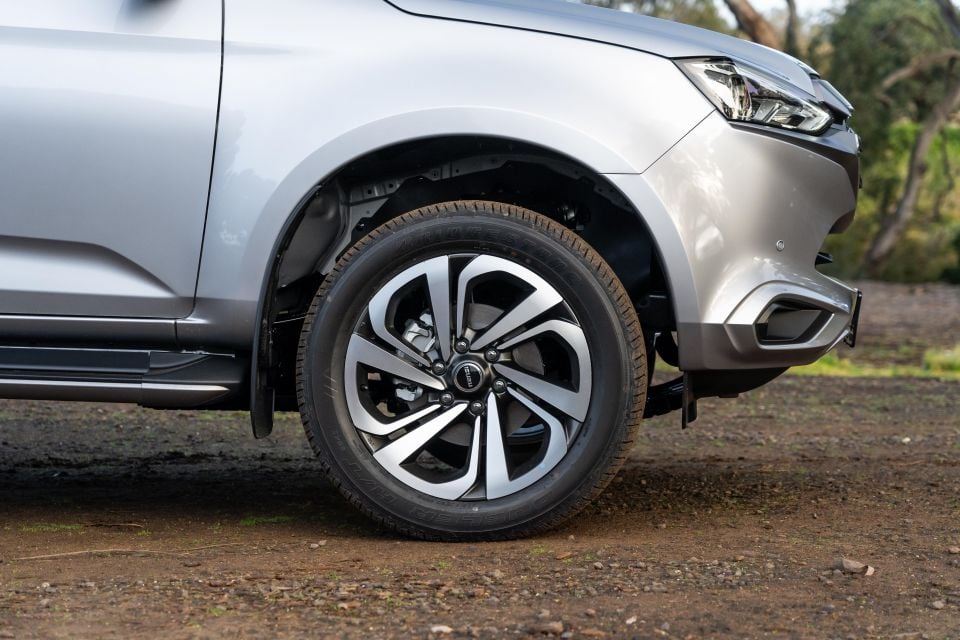
MU-X LS-U extras:
MU-X LS-T extras:
MORE: 2022 Isuzu MU-X price and specs
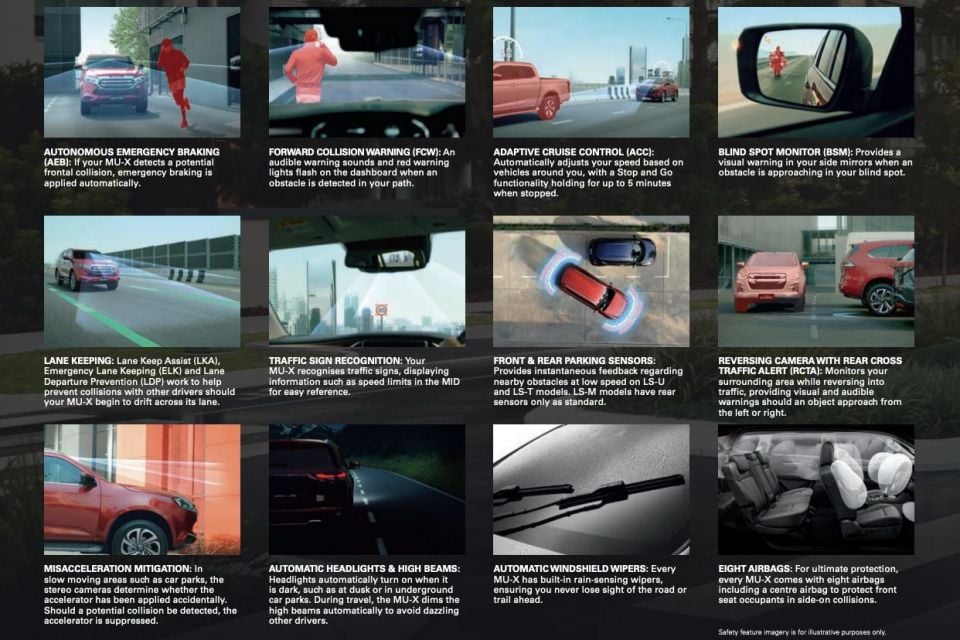
Passive features include eight airbags including full curtains and a front-centre ‘bag. For the kids there are three top-tether points and two ISOFIX anchor points.
All versions get a 3D camera- and radar-based active safety suite comprising: autonomous emergency braking, post-collision braking, traffic sign recognition, lane-keep assist, blind-spot monitoring, rear cross-traffic alert, driver attention monitor, and adaptive cruise control.
Most of the systems worked pretty well, though the active lane-keeping aid sometimes picked up road lines a little later than ideal. For long-distance driving, such fatigue-reducing systems are generally most welcome.
To adjust the lane-assist system settings (steering corrections or audible) or mute various other alerts you must go through the trip computer menus with steering wheel buttons, and your settings aren’t saved upon restart. It could be made more intuitive.
Crash tester ANCAP is understood to be working on scoring the MU-X, but as yet there’s no result. It’s worth pointing out that the mechanically similar D-Max with all the same safety features aced the stringent 2020 test with five stars, though.
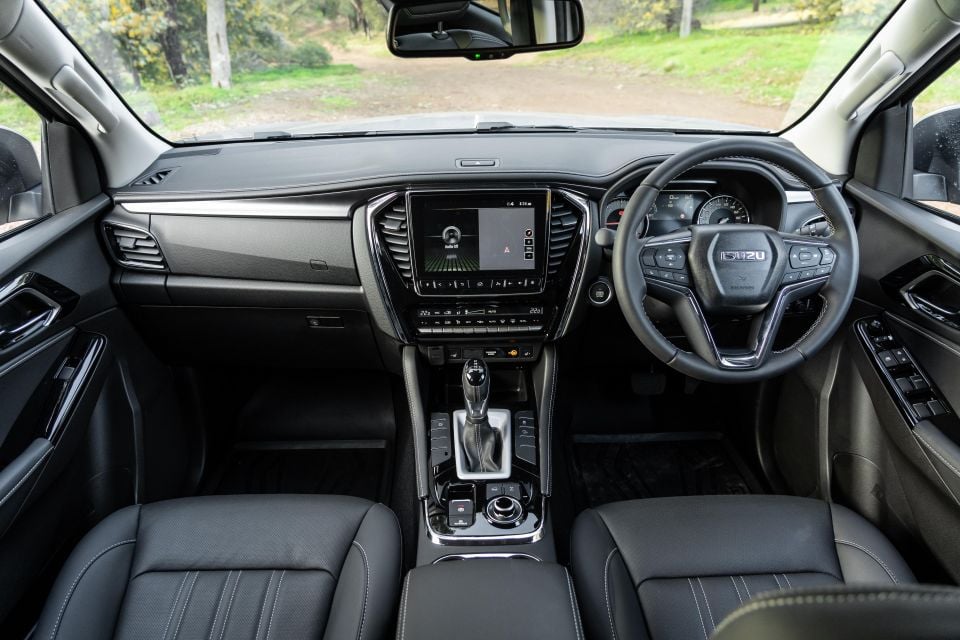
Anyone who’s sat in the new Isuzu D-Max ute will find the MU-X’s cabin familiar. It’s a notable step up on the old model, which felt antiquated.
While it’s not comparable with a more premium-feeling crossover with seven seats like a Kia Sorento or Mazda CX-9, its blend of easy-to-clean materials with hints of luxury strikes a reasonable balance.
I’d rate the interior above the Ford Everest’s or Mitsubishi Pajero Sport’s in terms of comfort, ergonomics and tech, though the trim quality falls shy of a Toyota Prado’s – as does the price.
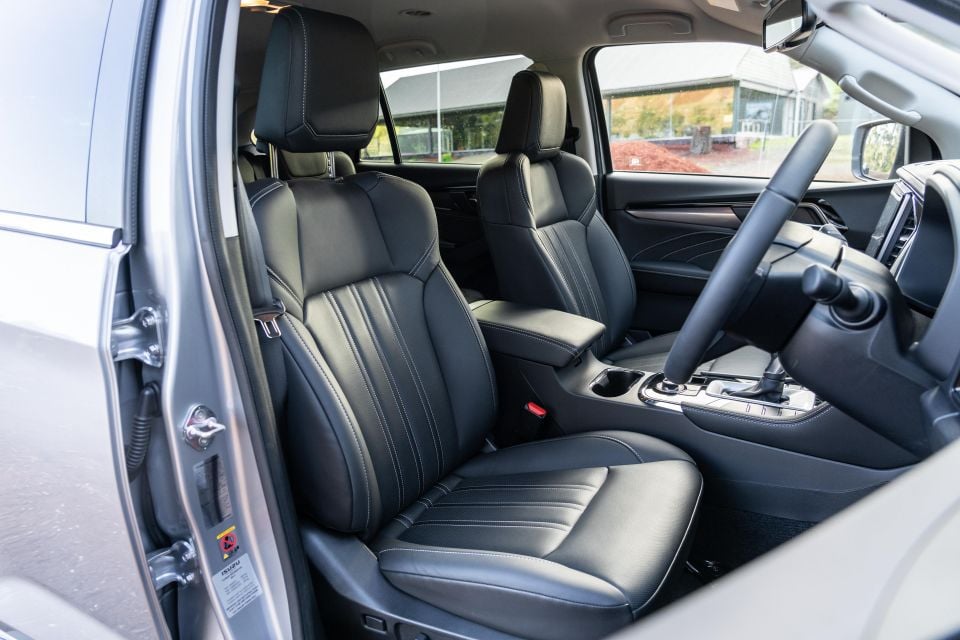
The front seats have plenty of side bolstering and leg support, and both were heated and come with powered adjustments. Front passenger height adjust would be a welcome addition, I’d add.
Isuzu has fitted an auto-dimming rear-view mirror, and sturdy A-pillar grab handles to help you pull yourself up.
The steering wheel is trimmed in soft leather and has classy contrast stitching and nicely weighted buttons. It adjusts telescopically unlike the old MU-X.
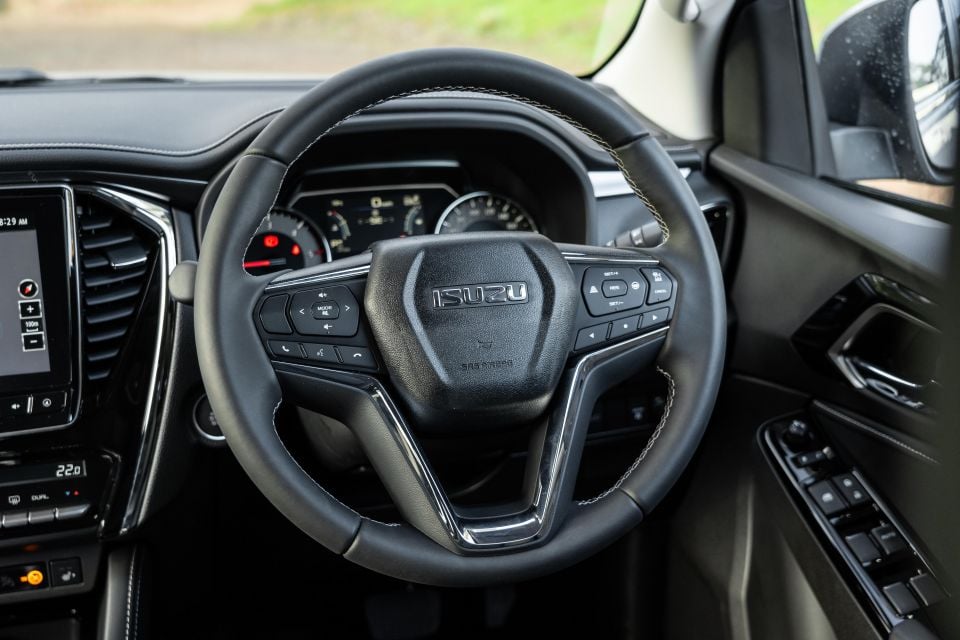
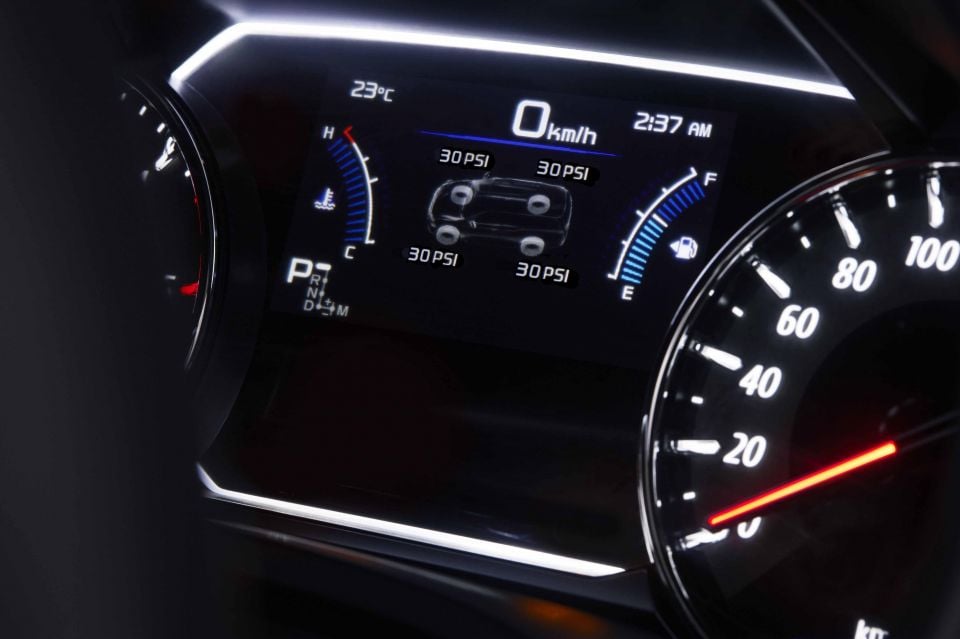
Behind this sit two analogue gauges as well as digital trip computer that displays driving data, a speedo, which wheels are being driven, and various active safety system settings.
The attempts at adding some pizzazz stretch to the padded dash top and centre tunnel surrounds with contrast stitching, squishy door cards and arm rests, light grey trim pieces, and ambient light piping.
The 1280 x 800 resolution 9.0-inch centre display runs basic but effective maps, wired and wireless Apple CarPlay, wired Android Auto, DAB radio receiver, Bluetooth, and a reversing camera with guidelines.
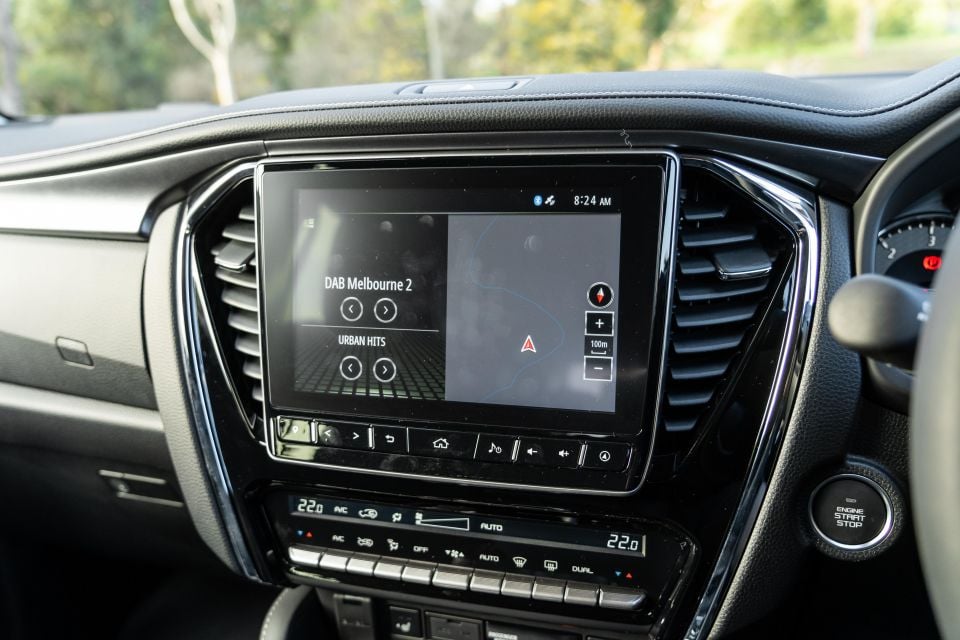
The eight-speaker JVC Kenwood audio system is also pretty good, in terms of sound quality.
Below this sits a dual-zone digital climate control system controlled by nice silver rocker switches. Along the centre tunnel you’ll find a rotary dial to switch from 2H to 4H or 4L, as well as an electric park brake switch with Auto Hold.
There’s no shortage of storage options, including dual gloveboxes, four front cup holders (12 in the whole cabin), door bins, a deep cubby below the fascia, a sunglasses holder, and a decent glovebox.
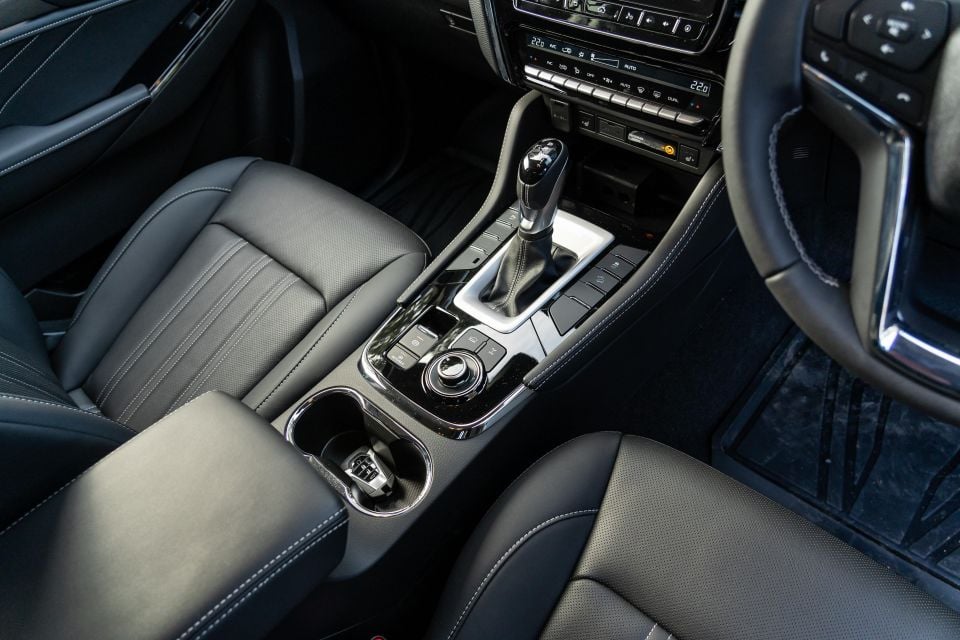
Grievances are mild, but there. There’s a lot of piano black trim all over the dash that acts as a magnet for dust and sun reflections, there’s no twistable volume knob, and the sun visor scrapes against the rear-view mirror when you lower it.
There are also numerous button ‘blanks’ on the tunnel and wheel, even though we had the flagship variant.
To the middle row: it certainly passes the family test, with the more forward B-pillar adding 25mm to the aperture over the old model. I’m just under 2m tall and had good rear legroom and headroom, and comfortable reclining seats – albeit they don’t slide.
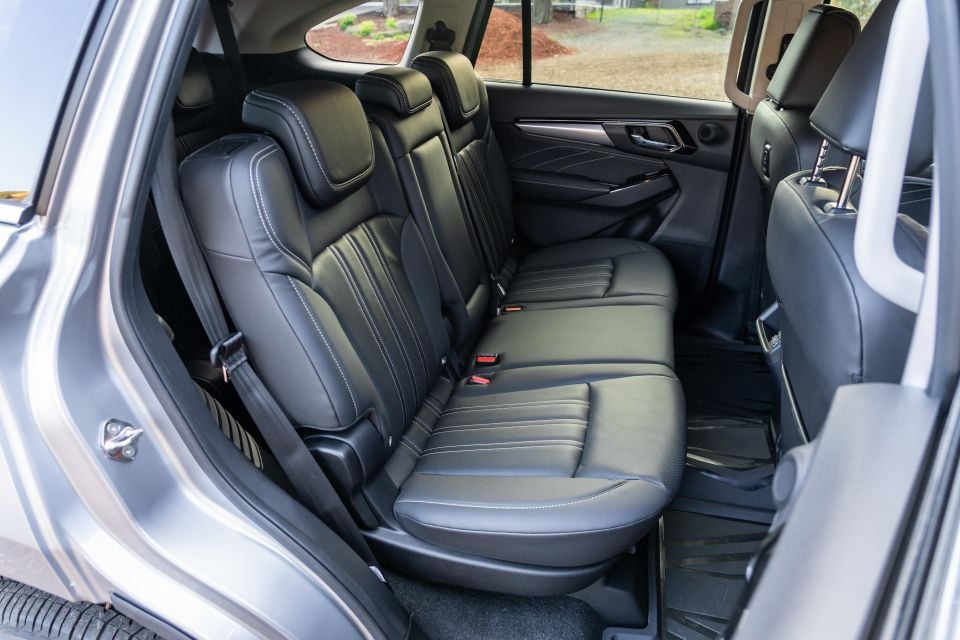
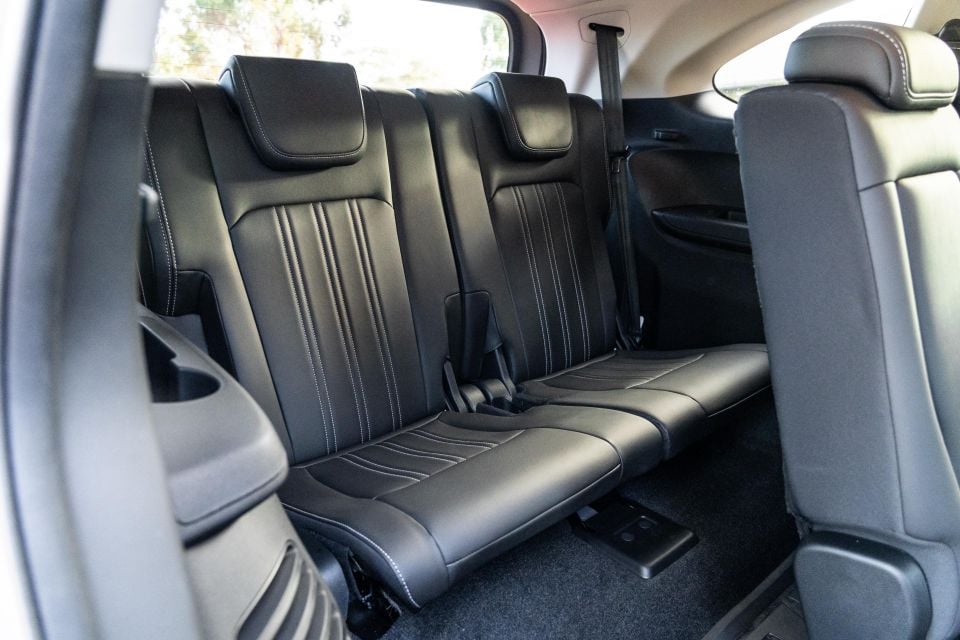
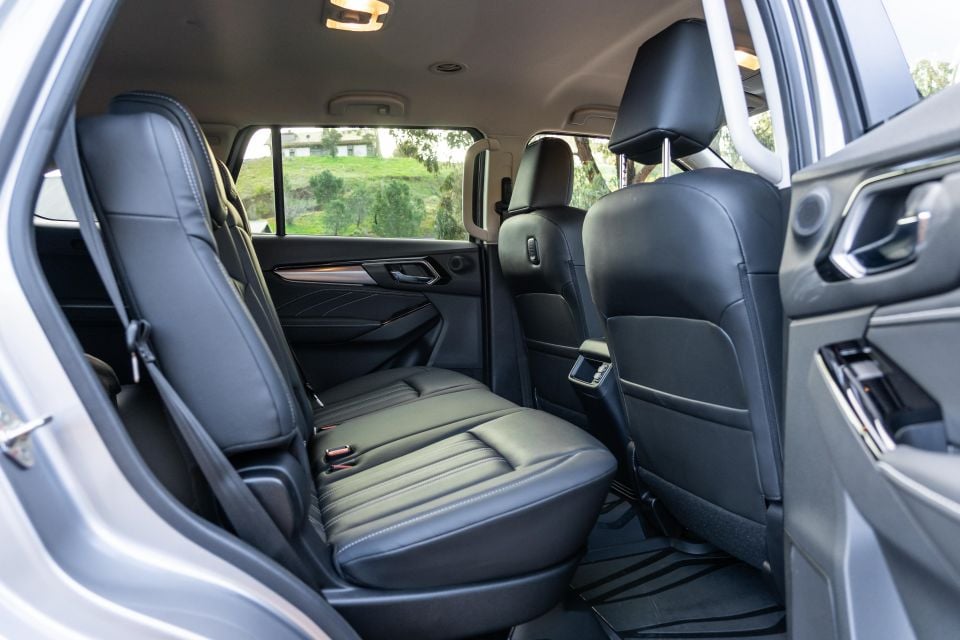
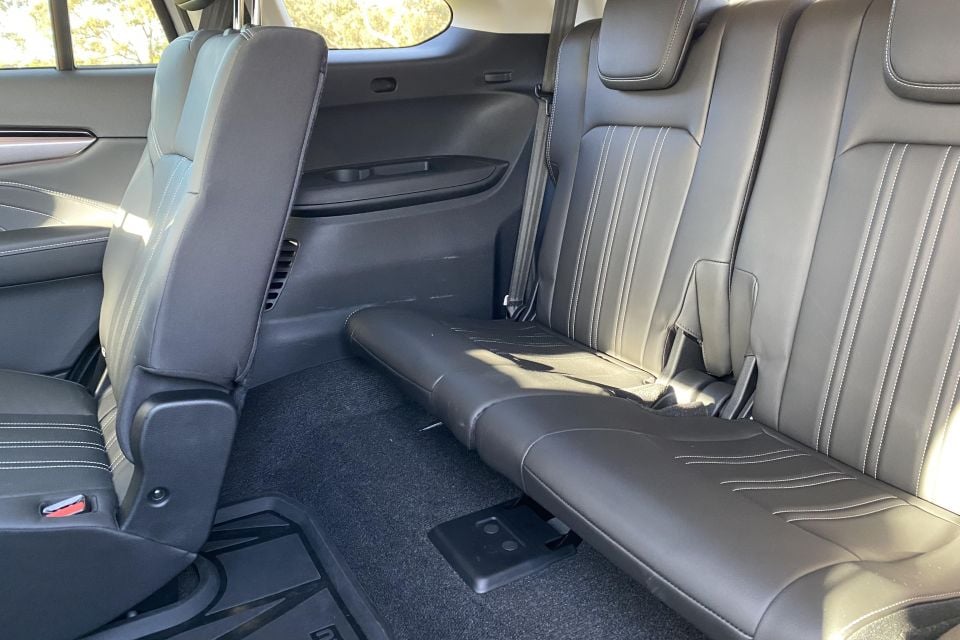
Amenities include vents in the roof with fan speed adjustment, two USB points fitted behind the centre console, a centre armrest with pull-out cupholders, big handles on the B-pillars, and a clever shopping bag hook behind the front-passenger seat.
Compared to a Pajero Sport for example, there’s clearly more headroom or shoulder room.
Access to the third seating row is really well considered. One simple tug on a lever tilts and tumbles the kerbside 60 per cent split-seat portion, revealing a sizeable aperture from which to access. It’s light enough for kids to do it if need be.
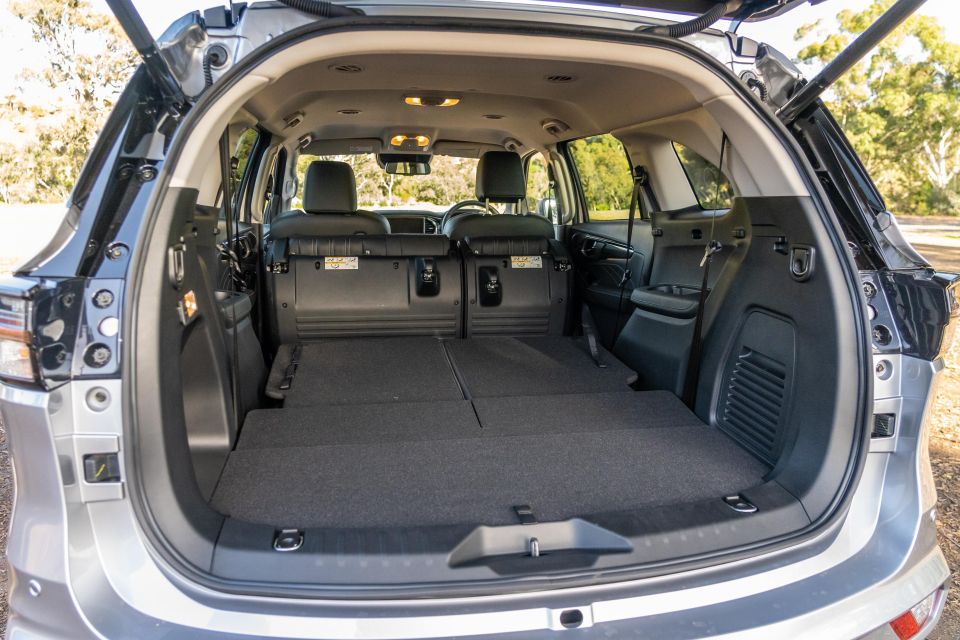
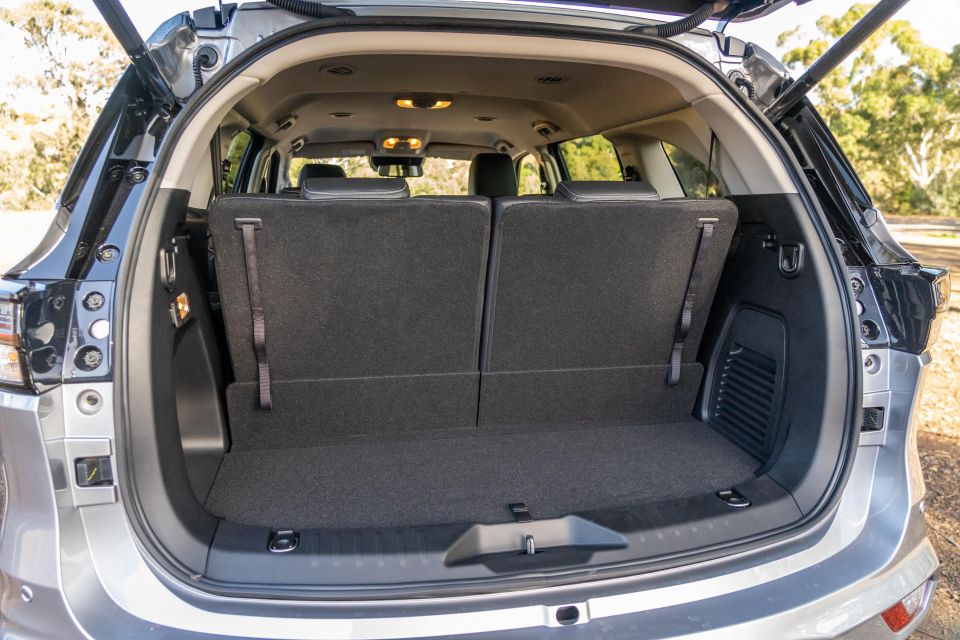
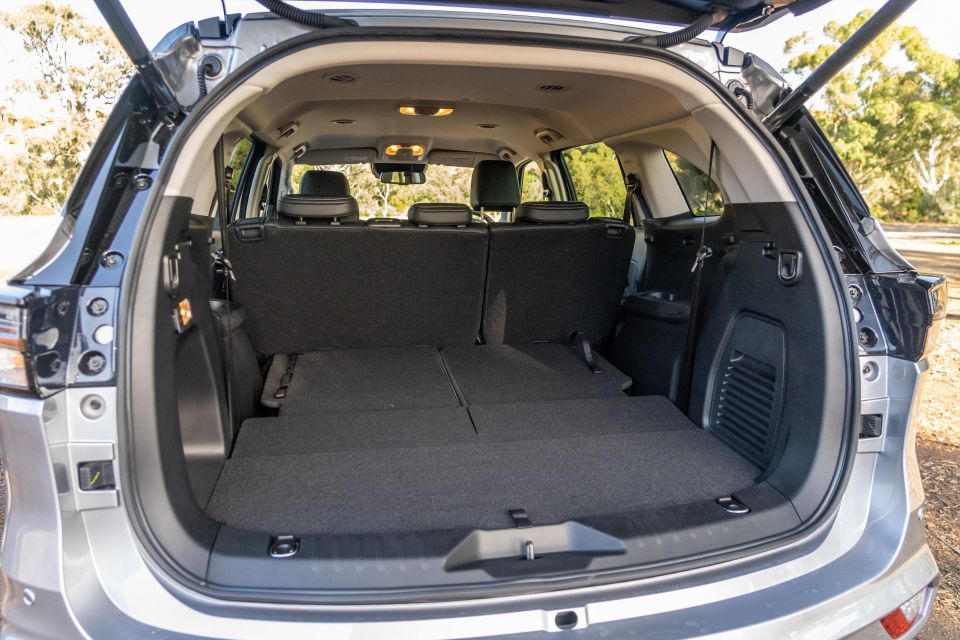
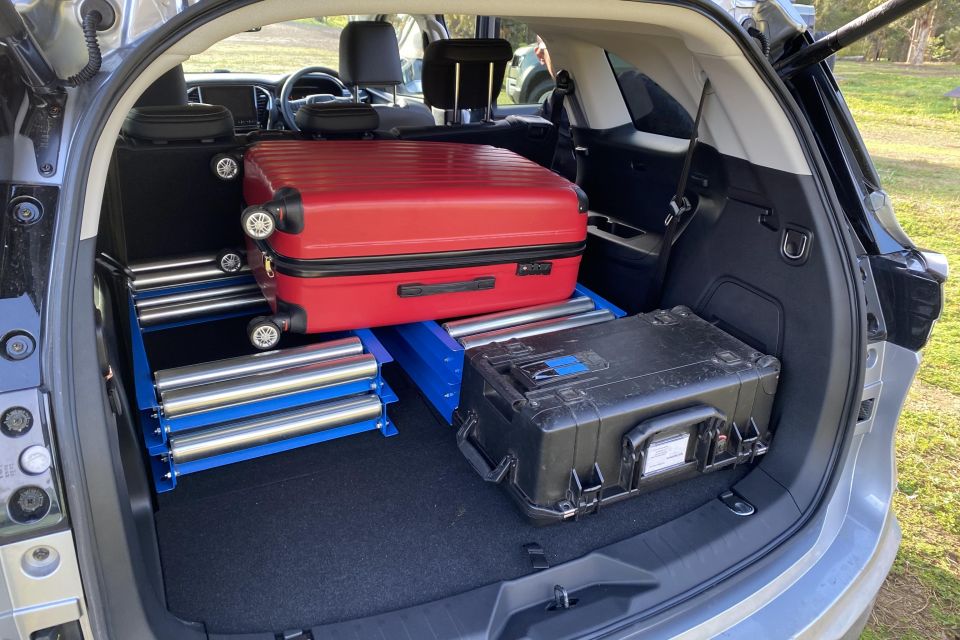
There’s even sufficient room for two adults at a pinch. Isuzu claims each rearmost seat is 105mm wider across the back than the old model’s. You also get roof vents and cupholders, though the small rearmost windows hinder outboard visibility.
When not in use these third-row seats fold neatly into the floor, like an Everest’s, and in much neater and more practical fashion than a Pajero Sport’s (average) or Toyota Fortuner’s (worse).
The old MU-X’s weird raised boot is long gone and with seven seats in use still stows 311 litres (enough for a decent suitcase and a few duffel bags). In five-seat mode it’s a capacious 1119L, and with five seats folded 2138L.
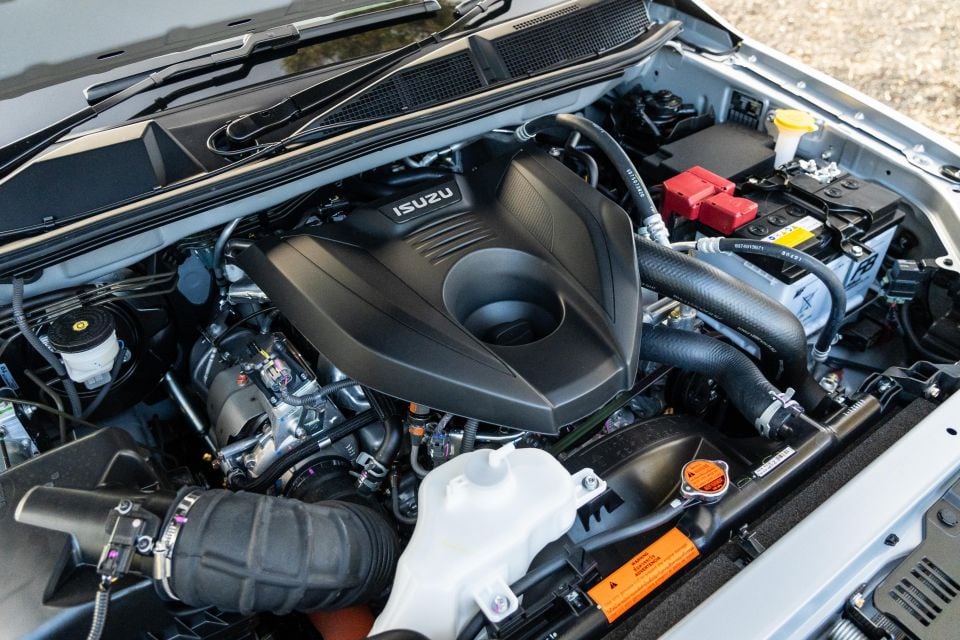
CarExpert brings reviews, research tools and trusted buying support together, guiding you from research to delivery with confidence.
The evolved ‘4JJ3-TCX’ 3.0-litre Isuzu four-cylinder turbo-diesel engine offers few surprises, since it’s lifted from the D-Max ute. With 140kW of power at 3600rpm and 450Nm of torque at 1600rpm, it offers 10kW and 20Nm more than the old MU-X’s donk did.
Keen off-roaders should note that torque graphs show it makes 300Nm from just 1000rpm, or idle point.
It’s mated to a standard six-speed (0.2 seconds quicker-shifting than before) Aisin automatic transmission and part-time 4×4 that defaults to rear-wheel drive but offers 4H and low-range 4L gearing. Isuzu has fitted a new transfer case and stronger, thicker output shaft among other upgrades.
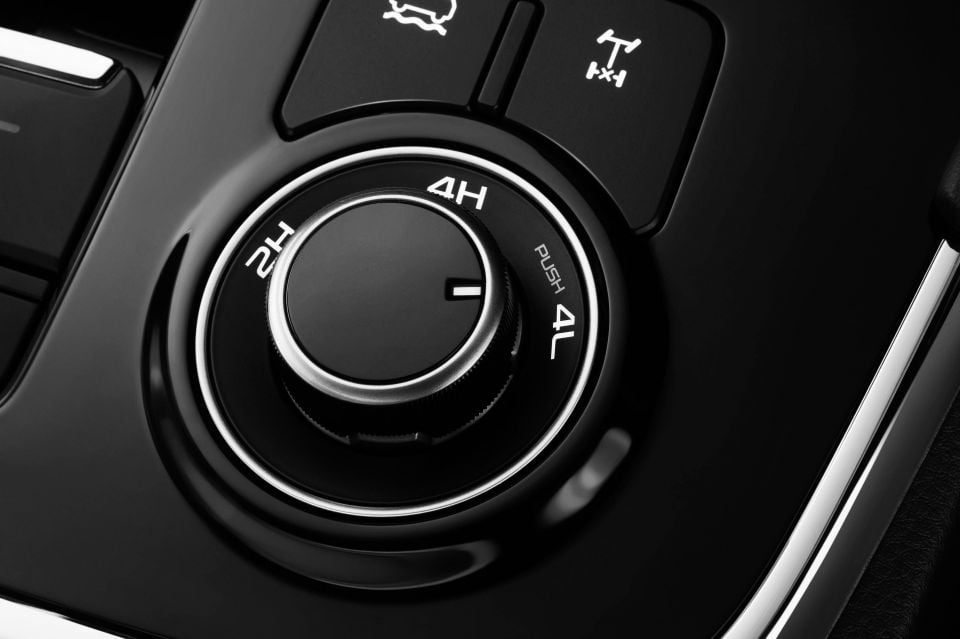
There’s also a system called Rough Terrain Mode that can brake an individual wheel to reduce slippage, and it picks up a locking rear diff which was something the old MU-X was crying out for over slippery ruts and choppy ascents.
Combined-cycle fuel consumption is 7.8 litres per 100km for 4×2 models and 8.3L/100km for the 4×4, dropping as low as 6.8-7.2 on highway runs and as high as 9.6-10.3 in stop/start commuting. The tank grows 23 per cent to 80L, addressing a shortcoming on the old model.
There’s a diesel particulate filter fitted along with a NOx trap (in place of an AdBlue after-treatment system) and hydrogen sulfide slip catalytic converter in the exhaust. It also has a maintenance-free steel timing chain.
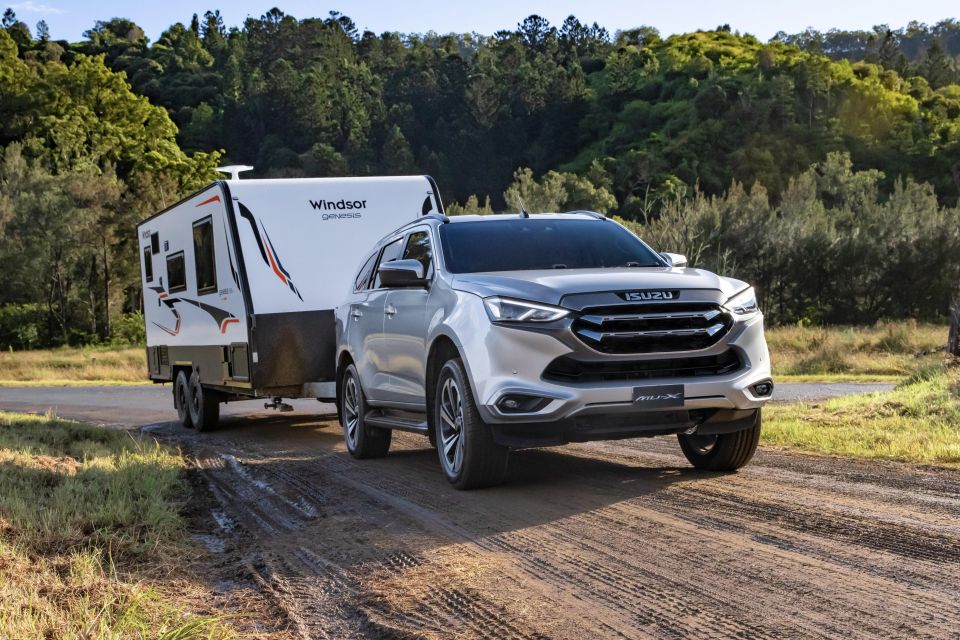
Before we talk dynamics, the mechanicals. This is a body-on-frame 4×4 unlike a monocoque crossover such as the aforementioned Kluger or CX-9, since it’s built for off-roading and towing.
The chassis rails are stronger than before and there’s an extra cross member to stiffen up the frame, more ultra high-tensile steel, and an additional 157 spot welds. All up Isuzu claims the new MU-X is 10-per cent stiffer than before.
The suspension setup comprises double wishbones up front with a stabiliser, and a rear axle with five linkages and coils – unlike the D-Max ute’s rear leaf springs. Isuzu says the rear has a stiffer anti-roll bar than before, and a higher spring rate.
Towing capacity climbs to 3.5-tonnes (was 3000kg) and with the right tow kit there’s a 350kg download rating. This betters the MU-X’s main rivals by 400kg.
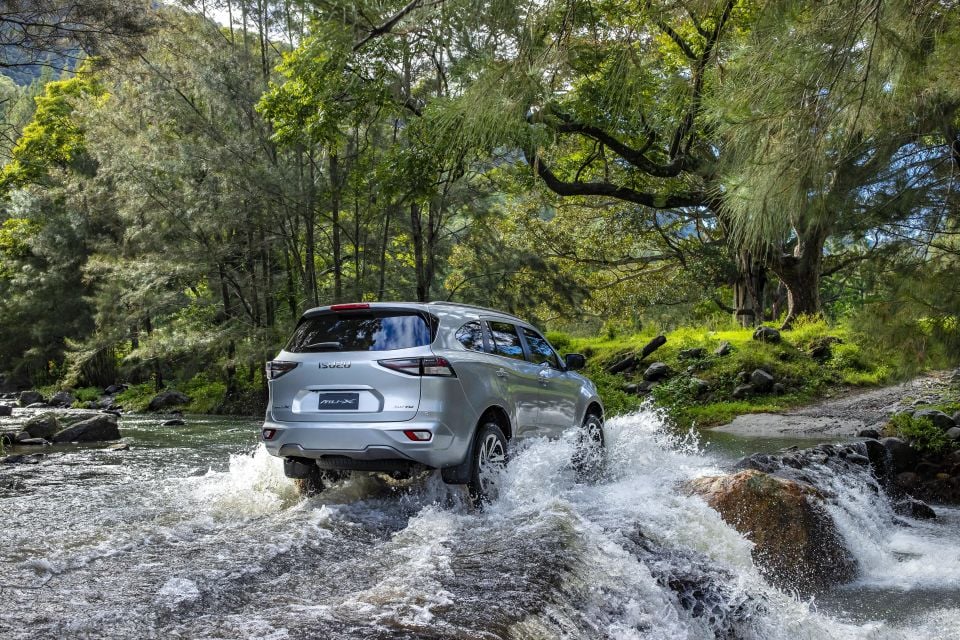
Factory accessories include a branded 350kg download tow kit, a seven-pin or 12-pin plug, ClearView extendable towing mirrors, an electronic brake controller, and a ‘Weight Distribution Hitch’ designed and tested “to work in harmony with the on-board [driver-assist] systems”.
Payload (2800kg GVM minus kerb weight) is 625kg for the LS-T but up to 665kg for the lighter LS-M, while GCM is up by as much as 250kg to 5900kg. This means that if you’re running at full cabin payload you can ‘only’ tow 3.1t.
Where the old MU-X measured 4825mm long by 1860mm wide by 1860mm wide, the new model is 4850mm x 1870mm x 1825mm. Wheelbase grows 10mm to 2855mm and clearance is 230mm (as before) to 235mm depending on spec.
The engine is typically solid, with enough instant punch off the mark to chirp the rear tyres. I clocked an average 0-100km/h time one-up with gear of 10 seconds, which is half-a-second swifter than a facelifted Prado I drove recently.
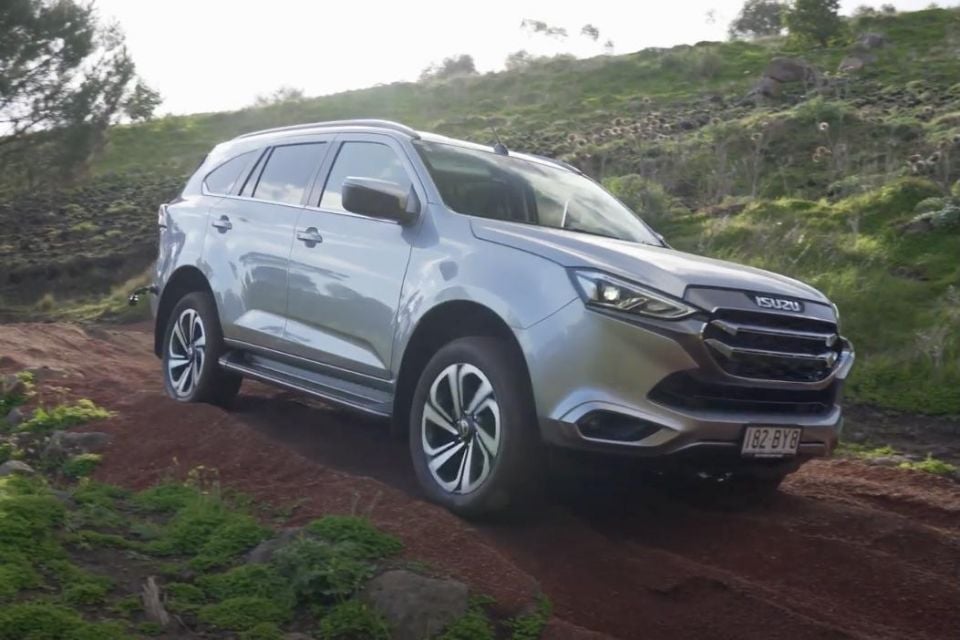
While a little less agricultural than before, and the cabin keeps free of vibrations, the engine is more audible through the firewall than any urban-focused SUV I can think of. It’s refined next to the old MU-X, but that’s grading on a curve.
The six-speed transmission seemed intuitive, and unlike the Everest’s BiTurbo engine and narrow-spread 10-speed auto, wasn’t caught shuffling back-and-forth between ratios much. It just rides the torque wave. Over 800km we averaged fuel use of 9.3L/100km at a speed average of 39km/h, and the car wasn’t yet run-in.
The speed-loaded electric-assisted steering is much, much lighter and less resistant than the old MU-X’s, and the wheel finally telescopes fore and aft. The turning circle is also 20cm smaller at 11.4 metres.
Ride quality was impressive even in the LS-T with its big 20-inch wheels and slim-sidewall highway tyres. The body feels stiff and the suspension filtered out most road imperfections nicely, to make this a consummate tourer.
However, over classic Aussie B-roads it also never felt quite as calm and settled as a Prado, with body movement usually evident – albeit to a manageable degree. My decibel reading at 100km/h over coarse chip bitumen was a Prado-matching 65dB.
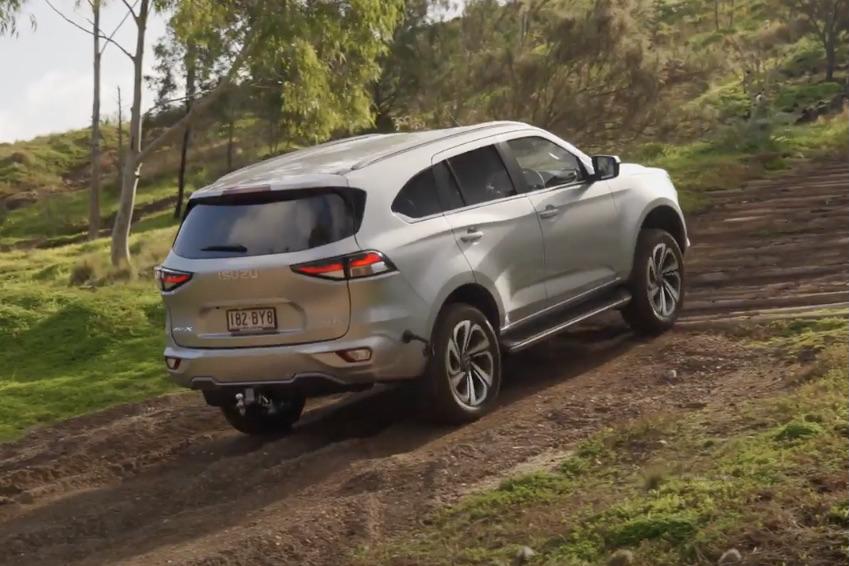
In terms of off-roading, the LS-T spec with its road tyres and side steps is clearly not made for bush bashing out of the box. But it’s highly capable with an 800mm wading depth sans snorkel, 29.2-degree approach angle, 26.4-degree departure angle, and 23.1-degree breakover angle.
Shifting out of rear-drive into high-range 4×4 is done via rotary dial on the fly, and if you need it there’s low-range – though the engine braking is stellar. Unlike the old MU-X there’s also an electromagnetic locking rear diff this time.
I’d probably prefer full-time 4WD though. You can drive an Everest, Prado or Pajero Sport in 4WD on sealed surfaces, which can be particularly handy when towing. By contrast the MU-X’s type of part-time 4×4 can’t be driven in 4H permanently.
Watch the 4×4-ing section of our MU-X launch video embedded at the top of the story, with a time stamp kicking off at the 22-minute mark.
We tackled slippery logs on ascent (how’re those tyres going to go?), a see-saw (is that chassis really so stiff?), offset mogul (to really test the traction control and rear diff), and a slippery downhill trail (is the gearing, engine braking and descent control all well sorted?).
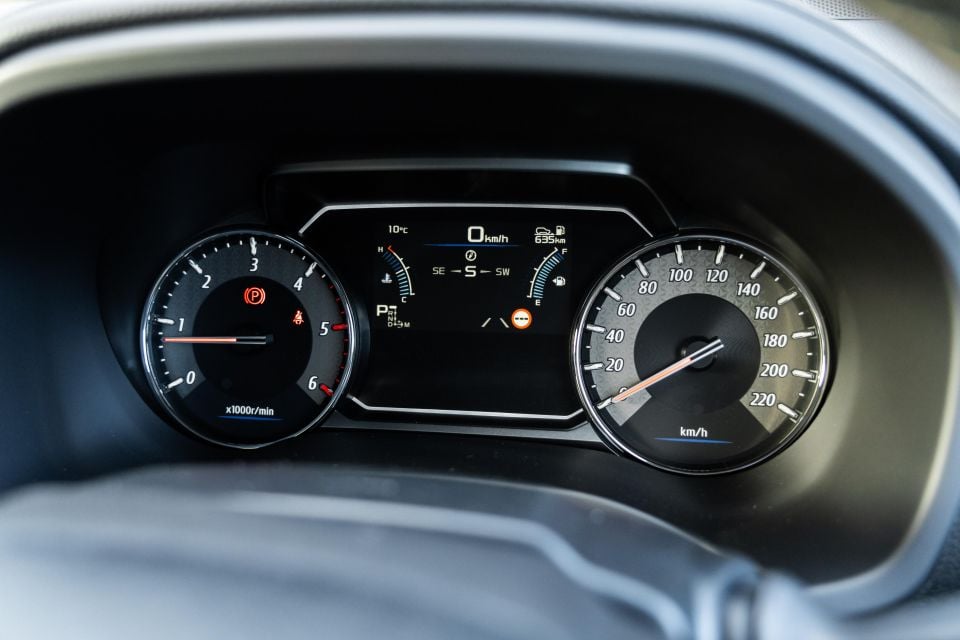
Isuzu provides a six-year, 150,000km warranty with up to seven years of roadside assist.
There’s also seven years of capped-price servicing at 12 month or 15,000km intervals.
The price for each of those seven visits is: $389, $409, $609, $509, $299, $749, and $409.
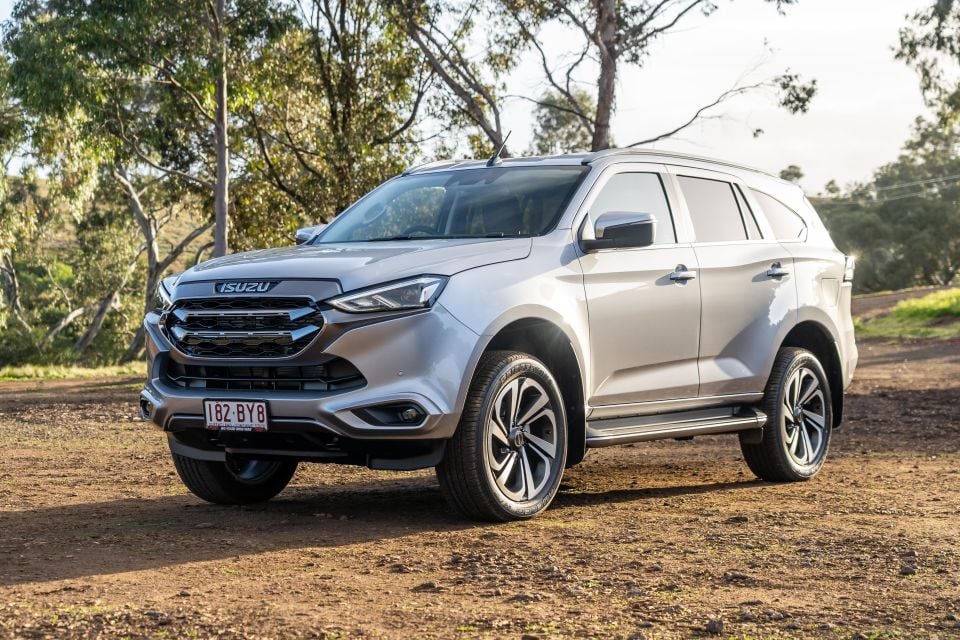
This new Isuzu MU-X, in LS-T guise as tested, isn’t the bargain the old car was – but you get what you pay for.
It’s far easier to drive than the old MU-X, has an even better diesel donk just made for hard work, offers more contemporary technologies, is a real seven-seater, and is backed by a good aftersales program.
I can’t wait to put one up against an Everest, Pajero Sport, and Fortuner/Prado as soon as we can. As we found with the new D-Max, this latest iteration MU-X is a clear step up for a brand already on the march.
Click the images for the full gallery
MORE: Everything Isuzu MU-X
CarExpert brings reviews, research tools and trusted buying support together, guiding you from research to delivery with confidence.
2025
$49,900
2025
$57,400
2025
$71,400
2025
$77,100
2025
$79,990
Add CarExpert as a Preferred Source on Google so your search results prioritise writing by actual experts, not AI.


Damion Smy
3 Days Ago
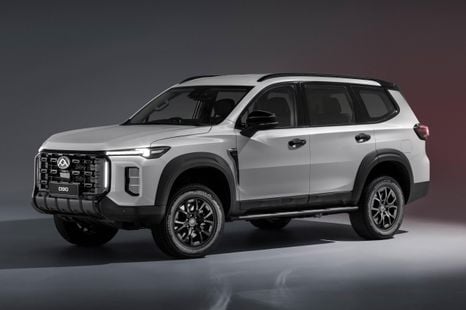

Damion Smy
6 Days Ago
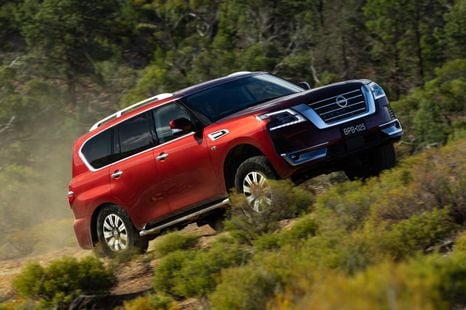

Damion Smy
6 Days Ago
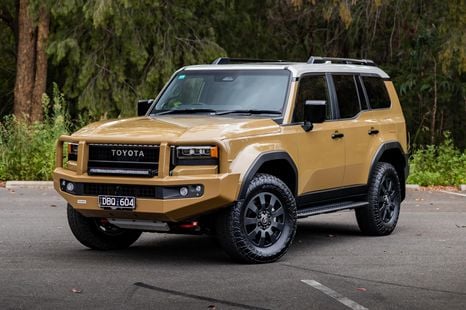

Damion Smy
7 Days Ago
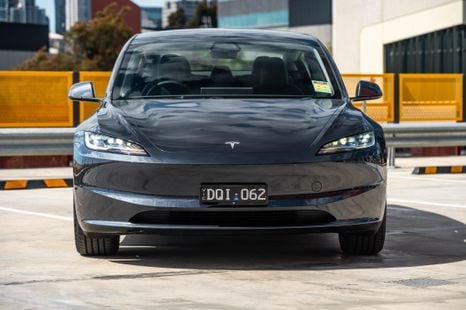

Josh Nevett
9 Days Ago
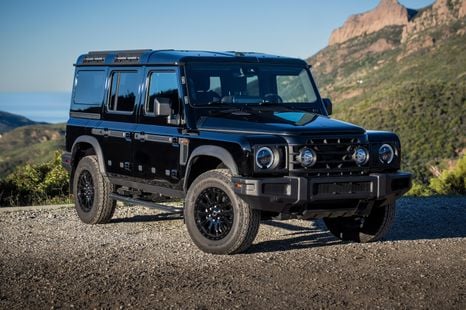

Damion Smy
11 Days Ago
Add CarExpert as a Preferred Source on Google so your search results prioritise writing by actual experts, not AI.
* Average savings based on recent CarExpert customer transactions. Actual savings will vary depending on vehicle make and model, location, stock availability, and other factors.
† Displayed prices exclude on-road costs such as delivery charges, registration fees, number plates, insurance and applicable road taxes. These prices are subject to change without notice and may not reflect current market pricing or dealer offers.
 Automotive Vehicle Spec Data & 4K images Powered by JATO Dynamics Ltd
Automotive Vehicle Spec Data & 4K images Powered by JATO Dynamics Ltd